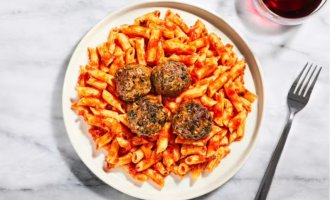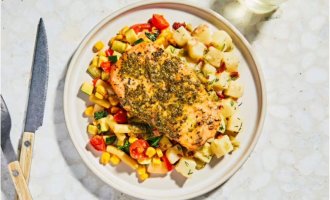The number of calories you eat in a day can really sneak up on you (just like it does when Netflix asks you, Are you still watching?) Calorie needs and how many calories you should eat vary per person and depend on a lot of factors like your age, weight, and activity level. As the fuel for our body, calories are critical to our ability to function.
But it’s important to know overall how many calories you’re eating day by day or week to week to avoid overconsumption, which can ultimately lead to weight gain, according to Jim White, RDN, ACSM Exercise Physiologist and an expert on nutrition and fitness. He explains that calories aren’t the enemy, they’re actually an important tracker of your diet. Learn how to figure out what your daily calorie count should be, and find the optimal sources of calories for your health goals.
What is a calorie?
Just as you would measure an inch of shelf space or a tablespoon of olive oil, a calorie is a unit of measure. In super technical terms, “a calorie is the amount of heat energy needed to raise the temperature of a kilogram (a liter) of water 1 degree Celsius,” White explains. Essentially, calories measure the energy in food. As humans we need energy—or calories—for our bodies to function properly. According to the National Institute of Health, the more calories a food has, the more energy your body can use to run a marathon, write a report, or deep clean your bathroom.
Every food or beverage you eat or drink has a calorie count. That count takes into mind the type and amount of whatever you’re consuming. Being aware of calorie counts and calorie intake is a tool to help you along your health journey.
How many calories do I need?
There’s no simple answer here. White tells us, “that equation is complicated and highly variable depending on gender, age, activity level and type, and genetics or metabolism.”
You may be trying to lose weight, maintain your weight or even gain weight depending on your health goals — calories are important when you’re trying to reach those health goals. “If people want to gain or lose weight,” White tells us, “calorie counting may be more important for that awareness of what it takes portion-wise to reach your goals.” If you eat more calories than you need in a day, according to FDA guidelines, based on your weight and activity level, you’ll gain weight. If you eat less calories than you need per day, you’ll lose weight.
While White notes that “calorie counts are always an approximation and never 100% accurate”, there are a few apps and trackers that can help you stay on top of the amount of calories you consume. Nutritionix, Calorie Calculator for Weight Loss, Myfitnesspal, and Calorie King are all free apps that can all help you keep track of what you eat, how much and how many calories that represents in a day. You can link a lot of calorie-counting apps to your Apple Health App which can also keep track of how much you move in a day.
Are certain calories bad or good?
If the idea is that calories consumed vs calories burned can equal weight gained or weight lost, then the theory should hold that if you eat ice cream all day but stay within your calorie limits, you’ll still be healthy, right? Sorry, but no. “It’s not just the calories, but how much of the macronutrients (protein, carbohydrate and fat) and micronutrients (vitamins and minerals) you take in that’s important for overall health and well-being,” explains White.
That means that sometimes high-calorie foods are better for you than lower calorie foods. Olive oil, avocado, nuts, and some fruits are all high in calories, but they also pack a nutrient-dense punch that helps us to stay healthy. With these foods, though, portion control is key. With other high-calorie foods, like fried wings or donuts, you may also be packing the calories, but unfortunately you won’t get the nutritional benefits like healthy fats of avocado or the protein and fiber of almonds.
What are sneaky sources of calories?
Extra or excess calories are hidden in all sorts of foods and drinks: Beverages like flavored coffees, juices, and alcoholic drinks are all high in calories, but not nutrient-dense—so you’ll be craving another snack or meal within a few hours. Salads are a great source of vegetables and can help you meet your fiber goal, but dressings are easy to overdose on and often have a lot of oil or hidden sugars that add calories. Foods that should be on the healthy side like whole wheat pasta and marinara sauce, may also have sneaky sugars that add in calories in the long run and don’t keep you satisfied.
Overall, if you take your personal calorie needs into account, track your calories and portion sizes, you’ll have a lot more information to help you stay healthy.






